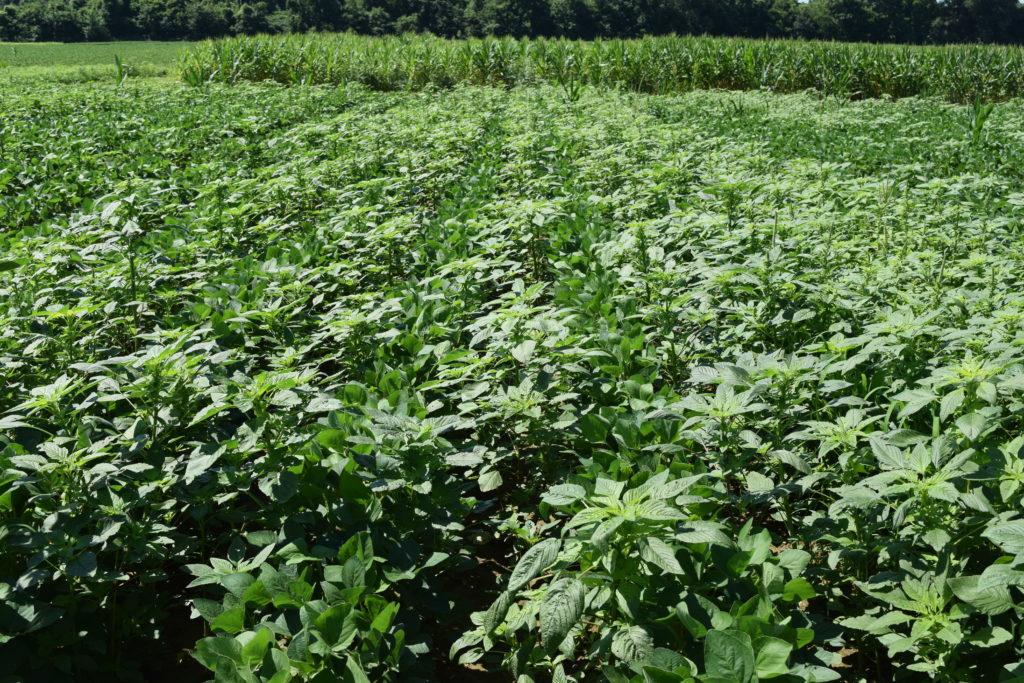27 August 2020
New insights into the genetics of Amaranthus weeds, to support sustainability in agriculture
 An international team of scientists, including researchers from the Dutch research company KeyGene from Wageningen, published the complete DNA of three types of Amaranthus weeds in the scientific journal Genome Biology and Evolution today. Amaranthus species cause crop yield losses, cost increases for farmers and additional environmental impact all over the world. The researchers hope that their results, which are free and publicly available, can contribute to further research into the genetics of weeds, in particular Amaranthus species, and thus to the sustainability of future agriculture.
An international team of scientists, including researchers from the Dutch research company KeyGene from Wageningen, published the complete DNA of three types of Amaranthus weeds in the scientific journal Genome Biology and Evolution today. Amaranthus species cause crop yield losses, cost increases for farmers and additional environmental impact all over the world. The researchers hope that their results, which are free and publicly available, can contribute to further research into the genetics of weeds, in particular Amaranthus species, and thus to the sustainability of future agriculture.
Several Amaranthus species are troublesome weeds. Thanks to their special metabolism (they are so-called C4 plants), Amaranthus plants especially compete with crops under somewhat warmer conditions. If the weed plants are not controlled, dramatic yield losses occur. Controlling the weeds leads to additional costs and environmental impact.
With the new results published now, we understand more about the genetics of these weeds. This will empower researchers to develop new possibilities to combat these and other weeds in an environmentally friendly way.
The researchers have sequenced and assembled the DNA of waterhemp (Amaranthus tuberculatus), smooth pigweed (Amaranthus hybridus), and the palmer amaranth (Amaranthus palmeri). For this, they used the latest technology, the so-called “long read DNA sequencers”. These produce much larger DNA puzzle pieces than the short read sequencers used for this earlier, making the puzzle of the chromosomes easier to put together and with fewer errors. These techniques are also used in research on many agricultural and horticultural crops to unravel the genetic basis of important properties – such as sustainable resistance, improved taste and extended shelf life – to the benefit of farmers, producers and consumers.
The team that now published the Amaranthus genomes also used advanced bioinformatics, which allowed them to extract unique knowledge from the DNA puzzles laid. All this has resulted in a high quality of the three published “genomes”, the total DNA, of the three Amaranthus species.
The new knowledge of the genetics of the three Amaranthus weeds provides valuable starting points for new research into the sustainable control of weeds, in particular the Amaranthus species. For example, it can be better studied how Amaranthus species can become insensitive to herbicides and how the occurrence of such insensitivity can be prevented. In addition, the genetic knowledge provides new opportunities to develop effective weed management systems that have less impact on the environment.
The international team behind the scientific publication consists of researchers from the University of Illinois, the Max Planck Society, BASF SE and KeyGene. The research has been co-funded by the USDA National Institute of Food and Agriculture, the International Max Planck Research School, and the Max Planck Society.
The University of Illinois, the Max Planck Society, BASF SE and KeyGene published a joint press release about the results and the scientific paper.
Read the (open access) paper in Genome Biology and Evolution
Would you like to learn more about this research? Send a mail to Antoine Janssen, genome informatics expert at KeyGene